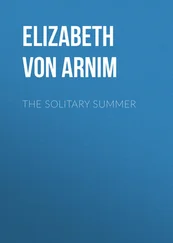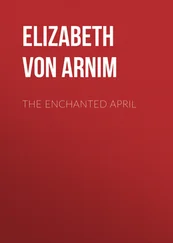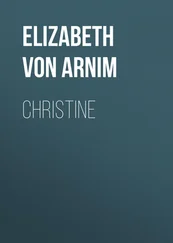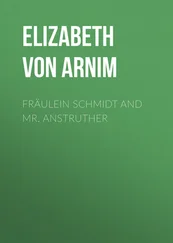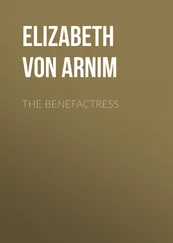Elizabeth von Arnim - The Pastor's Wife
Здесь есть возможность читать онлайн «Elizabeth von Arnim - The Pastor's Wife» — ознакомительный отрывок электронной книги совершенно бесплатно, а после прочтения отрывка купить полную версию. В некоторых случаях можно слушать аудио, скачать через торрент в формате fb2 и присутствует краткое содержание. Издательство: Иностранный паблик, Жанр: foreign_prose, foreign_antique, на английском языке. Описание произведения, (предисловие) а так же отзывы посетителей доступны на портале библиотеки ЛибКат.
- Название:The Pastor's Wife
- Автор:
- Издательство:Иностранный паблик
- Жанр:
- Год:неизвестен
- ISBN:нет данных
- Рейтинг книги:5 / 5. Голосов: 1
-
Избранное:Добавить в избранное
- Отзывы:
-
Ваша оценка:
- 100
- 1
- 2
- 3
- 4
- 5
The Pastor's Wife: краткое содержание, описание и аннотация
Предлагаем к чтению аннотацию, описание, краткое содержание или предисловие (зависит от того, что написал сам автор книги «The Pastor's Wife»). Если вы не нашли необходимую информацию о книге — напишите в комментариях, мы постараемся отыскать её.
The Pastor's Wife — читать онлайн ознакомительный отрывок
Ниже представлен текст книги, разбитый по страницам. Система сохранения места последней прочитанной страницы, позволяет с удобством читать онлайн бесплатно книгу «The Pastor's Wife», без необходимости каждый раз заново искать на чём Вы остановились. Поставьте закладку, и сможете в любой момент перейти на страницу, на которой закончили чтение.
Интервал:
Закладка:
Elizabeth Von Arnim
The Pastor's Wife
PART I
CHAPTER I
On that April afternoon all the wallflowers of the world seemed to her released body to have been piled up at the top of Regent Street so that she should walk in fragrance.
She was in this exalted mood, the little mouse-coloured young lady slipping along southwards from Harley Street, because she had just had a tooth out. After weeks of miserable indifference she was quivering with responsiveness again, feeling the relish of life, the tang of it, the jollity of all this bustle and hurrying past of busy people. And the beauty of it, the beauty of it, she thought, fighting a tendency to loiter in the middle of the traffic to have a good look—the beauty of the sky across the roofs of the houses, the delicacy of the mistiness that hung down there over the curve of the street, the loveliness of the lights beginning to shine in the shop windows. Surely the colour of London was an exquisite thing. It was like a pearl that late afternoon, something very gentle and pale, with faint blue shadows. And as for its smell, she doubted, indeed, whether heaven itself could smell better, certainly not so interesting. "And anyhow," she said to herself, lifting her head a moment in appreciation, "it can't possibly smell more alive ."
She herself had certainly never been more alive. She felt electric. She would not have been surprised if sparks had come crackling out of the tips of her sober gloves. Not only was she suddenly and incredibly relieved from acute pain, but for the first time in her life of twenty-two years she was alone. This by itself, without the business of the tooth, was enough to make a dutiful, willing, and hardworked daughter tingle. She would have tingled if by some glorious chance a whole free day had come to her merely inside the grey walls of the garden at home; but to be free and idle in London, to have them all so far away, her family down there in the west, to have them so necessarily silent, so oddly vague already and pallid in the distance! Yet she had only left them that morning; it was only nine hours since her father, handsome as an archangel, silvery of head and gaitered of leg, had waved her off from the doorstep with offended resignation. "And do not return, Ingeborg," he had called into the fly where she sat holding her face and trying not to rock, "till you are completely set right. Even a week. Even ten days. Have them all seen to."
For the collapse of Ingeborg, daunted into just a silent feverish thing of pain, had convulsed the ordered life at home. Her family bore it for a week with perfect manners and hardly a look of reproach. Then they sent her to the Redchester dentist, a hitherto sufficient man, who tortured her with tentative stoppings and turned what had been dull and smooth into excitement and jerks. Then, unable to resist a feeling that self-control would have greatly helped, it began to find the etiquette of Christian behaviour, which insisted on its going on being silent while she more and more let herself go, irksome. The Bishop wanted things in vain. Three times he had to see himself off alone at the station and not be met when he came back. Buttons, because they were not tightened on in time, burst from his gaiters, and did it in remote places like railway carriages. Letters were unanswered, important ones. Engagements, vital ones, through lack of reminders went unkept. At last it became plain, when she seemed not even to wish to answer when spoken to or to move when called, that this apathy and creeping away to hide could not further be endured. Against all tradition, against every home principle, they let a young unmarried daughter loose. With offended reluctance they sent her to London to a celebrity in teeth—after all it was not as if she had been going just to enjoy herself—"And your aunt will please forgive us," said the Bishop, "for taking her in this manner unawares."
The aunt, a serious strong lady, was engaged for political meetings in the north, and had gone away to them that very morning, leaving a letter and her house at Ingeborg's disposal for so long as the dentist needed her. The dentist, being the best that money could buy, hardly needed her at all. He pounced unerringly and at once on the right tooth and pulled it out. There were no stoppings, no delays, no pain, and no aunt. Never was a life more beautifully cleared. Ingeborg went away down Harley Street free, and with ten pounds in her pocket. For the rest of this one day, for an hour or two to-morrow morning before setting out for Paddington and home, she could do exactly as she liked.
"Why, there's nothing to prevent me going anywhere this evening," she thought, stopping dead as the full glory of the situation slowly dawned on her. "Why, I could go out somewhere really grand to dinner, just as people do I expect in all the books I'm not let read, and then I could go to the play—nobody could prevent me. Why, I could go to a music-hall if I chose, and still nobody could prevent me!"
Audacious imaginings that made her laugh—she had not laughed for weeks—darted in and out of her busy brain. She saw herself in her mouse-coloured dress reducing waiters in marble and gilt places to respect and slavery by showing them her ten pounds. She built up lurid fabrics of possible daring deeds, and smiled at the reflection of herself in shop windows as she passed, at the sobriety, the irreproachableness of the sheath containing these molten imaginings. Why, she might hire a car—just telephone, and there you were with it round in five minutes, and go off in the twilight to Richmond Park or Windsor. She had never been to Richmond Park or Windsor; she had never been anywhere; but she was sure there would be bats and stars out there, and water, and the soft duskiness of trees and the smell of wet earth, and she could drive about them a little, slowly, so as to feel it all, and then come back and have supper somewhere—have supper at the Ritz, she thought, of which she had read hastily out of the corner of an eye between two appearances of the Bishop, in the more interesting portions of the Times —just saunter in, you know. Or she could have dinner first; yes, dinner first—dinner at Claridge's. No, not at Claridge's; she had an aunt who stayed there, another one, her mother's sister, rich and powerful, and it was always best not to stir up rich and powerful aunts. Dinner at the Thackeray Hôtel, perhaps. That was where her father's relations stayed, fine-looking serious men who once were curates and, yet earlier, good and handsome babies. It was near the British Museum, she had heard. Its name and surroundings suggested magnificence of a nobler sort than the Ritz. Yes, she would dine at the Thackeray Hôtel and be splendid.
Here, coming to a window full of food, she became aware that, wonderfully, and for the first time for weeks, she was hungry; so hungry that she didn't want dinner or supper or anything future, but something now. She went in; and all her gilded visions of the Ritz and the Thackeray Hôtel were swamped in one huge cup (she felt how legitimate and appropriate a drink it was for a bishop's daughter without a chaperon, and ordered the biggest size costing four-pence) of Aerated Bread Shop cocoa.
It was six o'clock when she emerged, amazingly nourished, from that strange place where long-backed elderly men with tired eyes were hurriedly eating poached eggs on chilly little clothless marble tables, and continued down Regent Street.
She now felt strangely settled in her mind. She no longer wanted to go to the Ritz. Indeed the notion of dining anywhere with the cocoa clothing her internally as with a garment—a thick winter garment, almost she thought like the closer kinds of fur—was revolting. She still felt enterprising, but a little clogged. She thought now more of things like fresh air and exercise. Not now for her the heat and glitter of a music-hall. There was a taste in that pure drink that was irreconcilable with music-halls, a satisfying property in its unadulteratedness, its careful cleanliness, that reminded her she was the daughter of a bishop. Walking away from the Aerated Bread Shop rather gravely, she remembered that she had a mother on a sofa; an only sister who was so beautiful that it was touching; and a class of boys, once unruly and now looking up to her—in fact, that she had a position to keep up. She was still happy, but happy now in a thoroughly nice way; and she would probably have gone back in this warmed and solaced condition to her aunt's house in Bedford Square and an evening with a book and an early bed if her eye had not been caught by a poster outside an office sort of place she was passing, a picture of water and mountains, with written on it in big letters:
Читать дальшеИнтервал:
Закладка:
Похожие книги на «The Pastor's Wife»
Представляем Вашему вниманию похожие книги на «The Pastor's Wife» списком для выбора. Мы отобрали схожую по названию и смыслу литературу в надежде предоставить читателям больше вариантов отыскать новые, интересные, ещё непрочитанные произведения.
Обсуждение, отзывы о книге «The Pastor's Wife» и просто собственные мнения читателей. Оставьте ваши комментарии, напишите, что Вы думаете о произведении, его смысле или главных героях. Укажите что конкретно понравилось, а что нет, и почему Вы так считаете.




